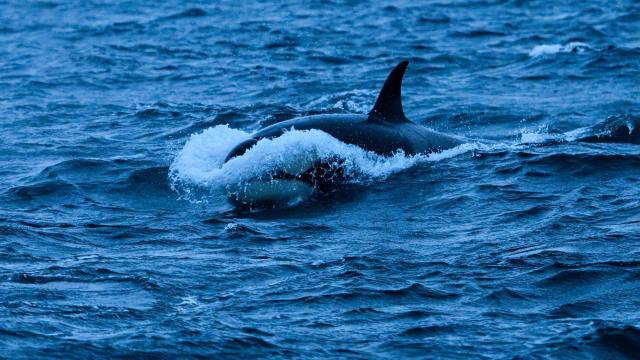Although the majority of orcas ignore boats at sea, there are a few in northern Spain that are apparently interested in ramming into them, setting off a string of questions and a bit of apprehension.
On Friday, Halcyon Yachts was in the middle of taking a 10.97 m boat to the United Kingdom when an orca pounded into its stern at least 15 times, according to a report in the Guardian. The incident caused the boat, confirmed to be the Beautiful Dreamer by Spanish media outlets, to lose steering capabilities, and it was then towed to the Spanish city A Coruña.
“It was repeatedly smashing the rudder, 15 times I’m guessing. It ripped it out of our hands,” Justin Crowther, captain of the Beautiful Dreamer, told the Spanish newspaper La Voz de Galicia. “We switched everything off, we turned the engine off, we turned all the electronics off, and it disappeared. Until we took the salvage.”
Maritime Rescue, the Spanish government entity in charge of providing help at sea, announced the orca encounter on Twitter and posted a video. It advised others not to get close to the orcas.
“There is a radio advisory in force,” the entity wrote. “In case you see [these orcas], do not get close and maintain a wide distance.”
Velero Beautiful Dreamer con el timón dañado por acometida de orcas a 6 millas de Cabo Prior, solicita remolque. 3 tripulantes (FIN, GBR). Salvamar Betelgeuse lo remolca a A Coruña. Vigente radioaviso de que en caso de avistamiento no intenten aproximarse y den amplio resguardo pic.twitter.com/o3Z4gMAKLO
— SALVAMENTO MARÍTIMO (@salvamentogob) September 11, 2020
This is not the first time orcas have rammed into boats along the Spanish and Portuguese coasts. In recent weeks, two boats have had encounters with orcas in the area. One of them was a Spanish navy sailing boat, the Mirfak. Although the crew tried to avoid the orcas, the animals still managed to do serious damage to the boat’s wooden rudder, according to the Faro de Vigo newspaper.
Researchers contend that the behaviour is strange, but that it shouldn’t be alarming. Alfredo López, a biologist with the nonprofit Coordinator for the Study of Marine Mammals, told the Faro de Vigo that the organisation believes these incidents could be the work of two singular orcas that could be “acting alone” or “part of a group.”
López believes that this could be a case of young orcas that are currently going through a learning and curious phase, but said there weren’t enough images to confirm it yet.
Nonetheless, he does think it’s important to point out that people shouldn’t be afraid given that the orcas “do not jump on the deck to attack people.”
“People can go about their normal lives,” he said. “There is no evidence in the entire world of a premeditated attack on a person or injuries or anything like that.”
